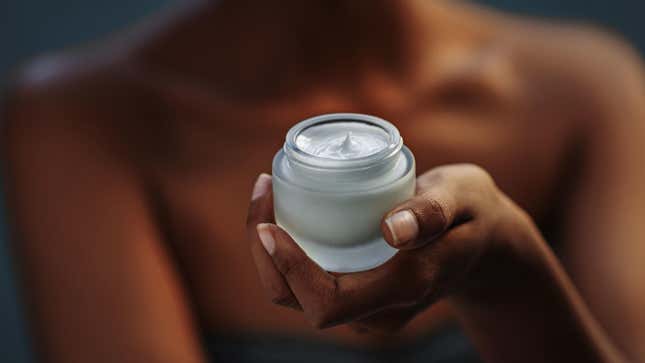
A major battle was recently won in the war on colorism, with the biggest retailer in the world cracking down on the sale of skin-bleaching products. As reported by the Washington Post, after over a year of lobbying by Minnesota-based nonprofit The Beautywell Project, Amazon has agreed to remove skin-lightening products containing mercury from its online marketplace; typically those boasting high amounts of hydroquinone.
The change was spearheaded by The Beautywell Project’s founder, Amira Adawe, who partnered with the Sierra Club’s Gender, Equity & Environment Program to make harmful products less available online. After a 2018 letter by the two organizations asking Amazon to remove mercury-laden products went unanswered, a petition was started—and garnered 23,000 signatures. After Adawe hand-delivered the petition to the juggernaut’s Shakopee, Minn. offices, the products were removed a week later.
“All marketplace sellers must follow our selling guidelines and those who don’t will be subject to action, including potential removal of their account,” an Amazon spokesperson told the Post, which noted that existing marketplace guidelines did not allow skin products containing mercury. As of now, skin-lightening products without mercury will still be available for purchase via Amazon.
Though the win may not be total, Adawe, who has been working to fight colorism for the past eight years, rightly notes that these products are as psychologically damaging as they are dangerous. While hydroquinone does have practical applications in dermatology (for instance, in treating hyperpigmentation and the fading of scars), it is not recommended for use without a prescription or the supervision of a doctor, not only because of the physiological risks, but adjacent psychological implications and cultural concerns.
“People don’t feel happy about their skin color,” Adawe tells the Post. “A large retail company selling skin-lightening products sends the message to people that they should change their skin color...We are dealing with years and years of trauma that these people are living with.”
“The biggest thing is to redefine what beauty is,” she later adds. “It is so much embedded in cultures that we need to retrain the colonized mind to make sure that even in the education system we create, it promotes all skin colors...The beauty standard cannot be one skin color.”

